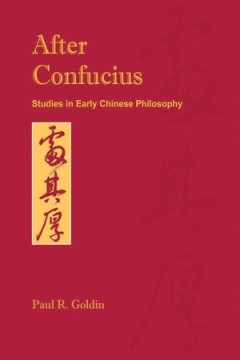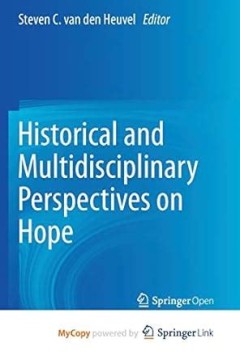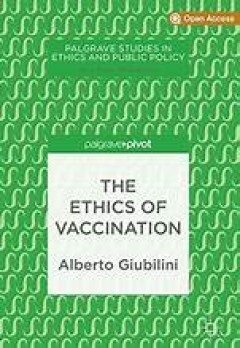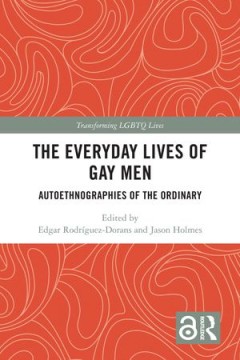Filter by

Against Sex Education : Pedagogy, Sex Work, and State Violence
This book is available as open access through the Bloomsbury Open programme and is available on www.bloomsburycollections.com. Why do we have sex education? For whom does it exist, and who is it against? This book explores these questions, ultimately calling into question the very existence of sex education itself. The analysis is centred on the marginalised lives of sex workers. This focus all…
- Edition
- -
- ISBN/ISSN
- 9781350178465
- Collation
- 184
- Series Title
- Radical Politics and Education
- Call Number
- -

After Confucius : Studies in Early Chinese Philosophy
After Confucius is a collection of eight studies of Chinese philosophy from the time of Confucius to the formation of the empire in the second and third centuries B.C.E. As detailed in a masterful introduction, each essay serves as a concrete example of "thick description" an approach invented by philosopher Gilbert Ryle, which aims to reveal the logic that informs an observable exchange among …
- Edition
- -
- ISBN/ISSN
- 9780824828424
- Collation
- -
- Series Title
- Studies in Early Chinese Philosophy
- Call Number
- 100 GOL a

End-of-Life Care, Dying and Death in the Islamic Moral Tradition
Modern biomedical technologies managed to revolutionise the End-of-Life Care (EoLC) in many aspects. The dying process can now be “engineered” by managing the accompanying physical symptoms or by “prolonging/hastening” death itself. Such interventions questioned and problematised long-established understandings of key moral concepts, such as good life, quality of life, pain, suffering, …
- Edition
- -
- ISBN/ISSN
- 978-90-04-45941-0
- Collation
- oer.unej.ac.id
- Series Title
- Studies in Islamic Ethics, Volume: 4
- Call Number
- -

Transformational Ethics of Film = Thinking the Cinemakeover in the Film-Philo…
What is ‘the good’ of the film experience? And how does the budding field of ‘film as philosophy’ answer this question? Charting new routes for film ethics, Martin P. Rossouw develops a critical account of the transformational ethics at work within the ‘film as philosophy’ debate. Whenever philosophers claim that films can do philosophy, they also persistently put forward edifying p…
- Edition
- -
- ISBN/ISSN
- 9789004460874
- Collation
- 334 hlm; ill., lamp.,
- Series Title
- Value Inquiry Book Series, Volume: 365 Philosophy of Film, Volume: 365
- Call Number
- -

Historical and Multidisciplinary Perspectives on Hope
This open access volume makes an important contribution to the ongoing research on hope theory by combining insights from both its long history and its increasing multi-disciplinarity. In the first part, it recognizes the importance of the centuries-old reflection on hope by offering historical perspectives and tracing it back to ancient Greek philosophy. At the same time, it provides novel per…
- Edition
- 1
- ISBN/ISSN
- 9783030464899
- Collation
- XVI, 263 hlm; ill., lamp.,
- Series Title
- -
- Call Number
- -

The Power of Morality in Movements; From Theory to Definitions, Classificatio…
Buku Akses Terbuka ini mengeksplorasi peran moralitas dalam gerakan sosial. Moralitas selalu menjadi pusat dalam gerakan sosial baik itu dalam bentuk dasar moral klaim gerakan, politik dan ideologi, nilai-nilai yang memotivasi partisipasi, prinsip-prinsip moral baru yang dibayangkan dan dipraktikkan di antara peserta gerakan, atau perjuangan keseluruhan atas nilai-nilai moral masyarakat yang te…
- Edition
- 1
- ISBN/ISSN
- 978-3-030-98798-5
- Collation
- online resource ( IX, 334 Pages)
- Series Title
- Nonprofit and Civil Society Studies
- Call Number
- 303.484170

The Ethics of Vaccination
This open access book discusses individual, collective, and institutional responsibilities with regard to vaccination from the perspective of philosophy and public health ethics. It addresses the issue of what it means for a collective to be morally responsible for the realisation of herd immunity and what the implications of collective responsibility are for individual and institutional respon…
- Edition
- 1
- ISBN/ISSN
- 978-3-030-02068-2
- Collation
- -
- Series Title
- Palgrave Studies in Ethics and Public Policy
- Call Number
- 2946-2746

The Everyday Lives of Gay Men : Autoethnographies of the Ordinary
Draws on the expertise of twelve contributors, writing from an autoethnographic first person approach.
- Edition
- -
- ISBN/ISSN
- 9781003133506
- Collation
- -
- Series Title
- -
- Call Number
- T 363.4 DOR e

Uncertain Bioethics : Moral Risk and Human Dignity
Uncertain Bioethics makes a significant and distinctive contribution to the bioethics literature by culling the insights from contemporary moral psychology to highlight the epistemic pitfalls and distorting influences on our apprehension of value. Stephen Napier also incorporates research from epistemology addressing pragmatic encroachment and the significance of peer disagreement to justify wh…
- Edition
- -
- ISBN/ISSN
- 9781351244510
- Collation
- -
- Series Title
- -
- Call Number
- -

FOLK DEVILS AND MORAL PANICS IN THE COVID-19 PANDEMIC
- Edition
- -
- ISBN/ISSN
- 9781003453222
- Collation
- -
- Series Title
- -
- Call Number
- -
- Edition
- -
- ISBN/ISSN
- 9781003453222
- Collation
- -
- Series Title
- -
- Call Number
- -
 Computer Science, Information & General Works
Computer Science, Information & General Works  Philosophy & Psychology
Philosophy & Psychology  Religion
Religion  Social Sciences
Social Sciences  Language
Language  Pure Science
Pure Science  Applied Sciences
Applied Sciences  Art & Recreation
Art & Recreation  Literature
Literature  History & Geography
History & Geography